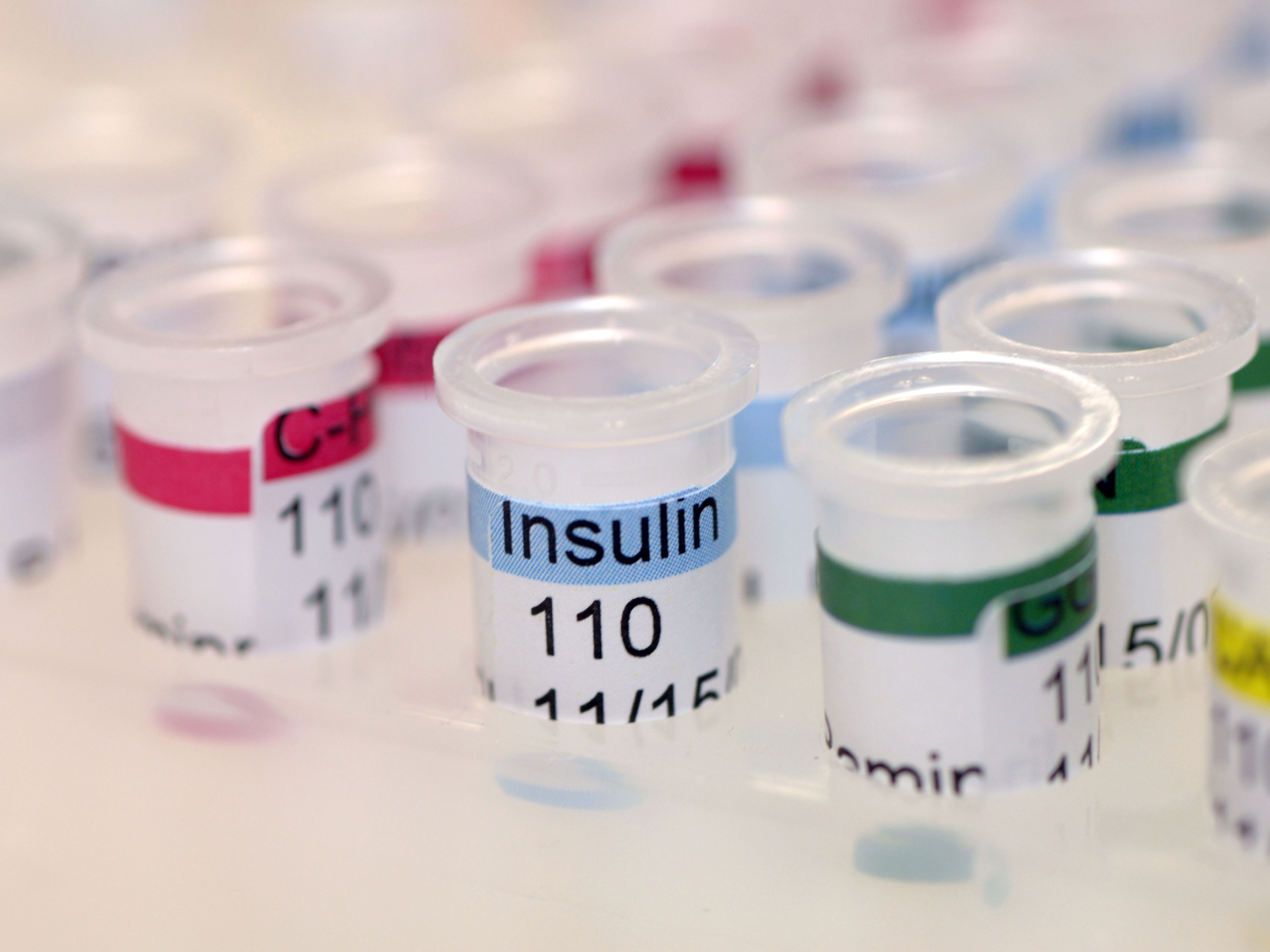Get Easy Health Digest™ in your inbox and don’t miss a thing when you subscribe today. Plus, get the free bonus report, Mother Nature’s Tips, Tricks and Remedies for Cholesterol, Blood Pressure & Blood Sugar as my way of saying welcome to the community!
Fats, not just sugar, promote insulin resistance

You probably know that the fats you consume on an everyday basis can influence your cholesterol levels. But one thing that may not be as clear is that those same fats can affect your risk of insulin resistance.
Insulin is the hormone that acts as a key to unlock cells so that glucose in the bloodstream can enter. When you’re insulin resistant, the insulin key doesn’t work as effectively and can lead to high glucose levels, which is a risk factor for heart disease, cancer, and of course, a type 2 diabetes diagnosis.
Over the years you’ve no doubt heard the common nutrition message that saturated fats are the enemy. That these fats lead to obesity and heart disease, among other things.
But it seems there may be more to the story that is yet to be discovered…
In a recent study, researchers investigated what the outcomes might be when people consumed excessive amounts of polyunsaturated fats (linoleic acid, omega-6 fats, given to participants as refined sunflower oil) or saturated fats (palmitic acid, the most common in the diet, given to participants as refined palm oil) over a 7 week period. They did this by adding high-fat muffins to their habitual diet, which contained 51 percent fat content.
In particular the researchers were looking to assess whether diet-induced genetic alterations may cause weight gain, obesity and insulin resistance, by measuring DNA methylation in around 450,000 subcutaneous fat tissue sites.
DNA methylation refers to an epigenetic mechanism whereby cells control the expression of your genes. And when genes don’t express themselves effectively, that’s when things in your body can go wrong and lead to disease.
Both types of fats increased the global degree of DNA methylation in all fat tissue sites tested, with 4975 sites being differentially regulated by the fat intake. Polyunsaturated fats influenced way more genes (1797), compared to saturated fats (125). At first glance that seems like saturated fat is the winner, but the saturated fat resulted in 28 altered gene expressions, while polyunsaturated fats resulted in none.
Still, in terms of obesity and insulin resistance, both fats were found to influence genes that have biological functions. What this all means in simple terms is that over consuming omega 6 fatty acids or long chain saturated fatty acids may alter your metabolism and increase inflammation in your body’s cells, which as a consequence could increase your risk of disease.
Therefore, decreasing these types of fats while increasing good ones, may offer you some protection…
Fats to avoid
Similar saturated fats to palm oil include shortening (all types), pork, lard, bacon grease, cottonseed oil, butter and rice bran oil. Similar omega 6 linoleic fats to sunflower oil include other types of vegetable oils such as corn, soy and their products such as salad dressings, mayonnaise and margarines. These are the types of fats that may be worth minimizing, particularly if you already have a metabolic condition.
Instead you can consume their counterparts, omega 3 and omega 9s, which are anti-inflammatory and offer health-protective mechanisms…
Omega 3 sources include salmon, sardines, mackerel, and chia seeds. Omega 9 sources include olive oil, olives, macadamia nuts and oil, and the triple heart-protector–avocados.
The moral of this story is, we’re still learning about the effects of different nutrients on the body. And while research is now showing that excessive carbohydrate intake leads to heart disease more than saturated fat does (in many cases), the area of insulin resistance is not quite as clear.
While you don’t need to stop eating nutrient dense meats and eggs, minimizing additional sources of omega 6 and saturated fats, and focusing on consuming more omega 3s and 9s in your diet, may provide additional protection.
Editor’s note: Are you feeling unusually tired? You may think this is normal aging, but the problem could be your master hormone. When it’s not working, your risk of age-related diseases skyrockets. To reset what many call “the trigger for all disease” and live better, longer, click here to discover The Insulin Factor: How to Repair Your Body’s Master Controller and Conquer Chronic Disease!
Sources:
-
Perfilye, A, et al. Impact of polyunsaturated and saturated fat overfeeding on the DNA-methylation pattern in human adipose tissue: a randomized controlled trial. — Am J Clin Nutr. 2017;105:991–1000.
-
USDA Food Composition Databases — Usda.gov. (2017). Retrieved 17 April, 2017













